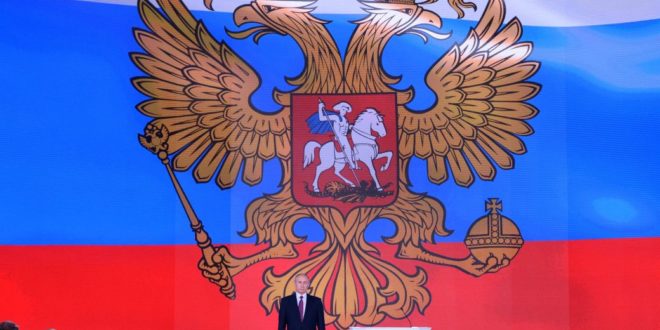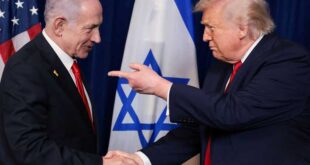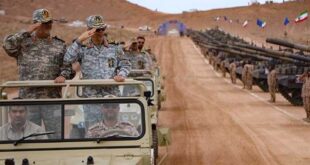Giancarlo Elia Valori
In mid-October of last year, President Trump’s order to leave the Syrian territory as quickly as possible led the Russian military to quickly filling the void left by the U.S. forces.
Certainly some U.S. special forces are still operational, but the strategic aim is obviously lacking.
On the edge of the 32 kilometre corridor from the border line between Turkey and Syria, Bashar al-Assad’s army now controls Manbiji, at the beginning of the buffer area requested by Turkey, up to Ayn Issa, Tel Amer and Qamishli.
Below this line there are only the YPG and PKK Kurds, of whom it is difficult, in fact, to separate and distinguish the militancy.
When Assad regained control of North-East Syria, with the decisive Russian help, President Putin was still on a diplomatic tour between Saudi Arabia and the Emirates.
To say the least, none of the US traditional Sunni allies has appreciated the fast US acquiescence and Turkey’s unequal agreement with the United States. In fact, this is exactly the way in which the Syrian and Kurdish policy followed by the United States and Turkey has been interpreted by Saudi Arabia and the Emirates.
The Sunni powers regard Turkey as a dangerous side effect of the Muslim Brotherhood – and this holds true at least for Saudi Arabia – or also as a geopolitical wild card – and this applies to the Emirates.
This holds true also for the countries, like Qatar, which have always been interested friends of the Ikhwan, namely the Muslim Brotherhood.
Hostile to God and to his enemies – this is the future of the Turkish global strategy, rebus sic stantibus. Either it binds itself to Russia, under its terms and conditions, or it remains alone in the new Greater Middle East, by now deprived of support from the United States.
The Sunnis who count, namely those of the Arabian Peninsula, and Al Jazeera have understood the U.S. countermelody and are already looking for new allies. They cannot succeed on their own and hence Russia sets in.
“Russia is my second home” – as Prince Mohammed bin Zayed from the dynasty ruling in Abu Dhabi has cleverly stated – but the withdrawal of U.S. soldiers ordered by President Trump is really a strategic, moral and historical turning point.
The Kurds, betrayed in no time by the United States, have immediately negotiated and reached a good agreement with Assad, mediated only by Russia and organized above all by the Shiite factions of the Kurdish nation, present especially in Iraq and with excellent relations with Iran.
Syria, i.e. the place where Turkey wants to enter so as to avoid the strategic link between Syrian Kurds, Anatolian Kurds and Iraqi Kurds – which would constitute a Kurdish State capable of annihilating the rest of the ethnically Turkish population – needs an ally that can “keep firm and alive” (as Machiavelli said with reference to France) Syria as a solid unitary entity, Kurds included.
President Putin still wants to stay in Syria, because he hopes that, in the future, Turkey will leave NATO and become a Russian peripheral ally. Is it an impossible dream? Not necessarily so.
Turkey may also adhere to Russia’s project: the Atlantic Alliance is now the wreck of a war which ended seventy years ago and which has never supported Turkey except in the long series of military coups in 1961, 1980 and again in 1997. Finally, in the changing of the guard that saw all the NATO Mediterranean countries oust their ruling classes, Turkey had to face the AKP, a party reborn from the ashes of an Islamist organization that had been banned by the Turkish Constitutional Court.
The Muslim Brotherhood, acting as US agents – also when Hillary Clinton was Secretary of State – to “bring democracy”, i.e. its own democracy, throughout the Islamic world. A masterpiece in reverse.
Currently, after the end of the “Cold War”, only those who can be blackmailed rise to power. Hence the transfer of power in Italy, in the Middle East, but also in Latin America and even in Asia.
Briefly President Putin currently wants Turkey to leave NATO to start collaboration with Russia in Central Asia and, above all, in the great future business of pipelines from Asia to Europe.
The “Middle Corridor” – if organized by Turkey – favours the Chinese Belt and Road Initiative.
There is also the Baku-Tbilisi-Kars railway opened in October 2017, as well as Turkmenistan’s port on the Caspian Sea, built by Turkish companies closely linked to the Turkish Presidency, which has been operational since 2018.
As early as 1992, the Western powers have conveyed the message to Turkey that it only needs to become the secular Sunni rampart against Iran.
In 1993 Turkey also founded the Alliance for Turkish Culture while, in 2009, the Turkish regime established the Cooperation Council of the Turkic Speaking States.
Now Turkey’s primary idea is to be a “central power” that, however, operates freely in Asia and, in any case, outside the interests of the Atlantic Alliance.
This is exactly what Vladimir Putin likes about it.
The Turkish energy mix, however, is linked to natural gas. Turkey imports it from Russia, Azerbaijan and Iran.
If the Trans-Anatolian Gas Pipeline Project (TANAP) is implemented, Turkey’s energy connection from Central Asian countries would be objectively more important than the old link with the USA and NATO.
Hence Russia could be a real trump card for Turkey.
President Putin, however, has favoured the connection and operational communication between Assad’s forces and the “Turkmen” militias linked to Turkey.
There is no channel of communication that Russia does not control in the Greater Middle East.
After all, if you wage war in the Middle East against a Western-style “villain” typical of comics, the only possible result is that your work is done by the old enemy.
There is also the Iraqi insurgency which concerns corruption, inefficiency and government irrelevance.
So far the toll has been 200 victims, with at least 6,000 injured people.
It is said that Iran has supplied snipers to hit the crowd, but there is no evidence about it.
The Asaib ahl-Al haq militia, i.e. the Shiite network of Al Ghazali that has already operated in Syria, was seen operating also in Iraq and often had to face strong negative reactions from the local population.
Meanwhile, Russia is reaching agreements with all Middle East countries obviously focusing on energy, but also on the media – and above all TV – as well as on infrastructure and the Armed Forces.
In January 2019 Russian Foreign Minister Lavrov hosted his Iraqi counterpart, Mohammed Alì al-Hakim.
Russian investment in Iraq has recently exceeded 10 billion US dollars, while Russia has cancelled an old Iraqi debt of 12.2 billion US dollars in exchange for a new 4 billion US dollar oil contract, which provides Russia with the opportunity of starting to exploit West-Qurna 2, one of the largest oil fields in the world.
Lukoil and Gazprom Neft officially entered the Iraqi Kurdistan’s oil market in 2012, thus paving the way for many new contracts.
Russia has also directly funded Kurdistan’s government, with a 3.5 billion US dollar loan, which will be repaid with the oil sold to Russia’s Rosneft as soon as possible.
In October 2013 Russia sold to the Kurdish world in Iraq and Syria 4.3 billion US dollars in weapons to replace the Iraqi ones. These funds make the Kurdish Rojava autonomous from Iraq, even strategically.
The old intelligence operational centre between Russia, Iran and Syria – opened by Russia in Iraq – is still very active.
Now it also carries out geoeconomic operations.
In September 2018, also the Iraqi-Russian Cultural Centre in Baghdad – closed down in 2003 – was reopened.
In Iraq, however, Russia never wants to compete with Iran. Moreover, Iran and Iraq work very well also with China.
There are 1.7 billion dollars of trade between Iraq and the Russian Federation, which cover the 30 million US dollars of debt that Iraq still holds with China.
On October 21, 2019, President Putin received Erdogan in Sochi and, after seven hours of discussion, the Turkish-Russian bilateral plan has been such as to further diminish the U.S. role, while the Russian one is increasing significantly.
All this is a continuation of the meeting between Russia, Turkey and Iran held in Astana on September 16 last.
Russia wants to weaken the Iranian security forces still present in Syria, by using both Iranian coldness about the Syrian conquest of Idlib and Iran’s traditional tendency to remain – with its forces – on the border between Iran and Syria and to operate, above all, in favour of the corridor between the Iranian Shiite capital and Southern Lebanon.
Russia has not much interest in it.
Moreover, the Russian Federation wants Turkey to quickly disarm its jihadist militias in Idlib, particularly Hayat Ahrir al-Sham, so as to make its ally Bashar al-Assad achieve full control of the Afrin area, the key point of the North Syrian border and, above all, of the military relationship between Turkey and Syria.
With a view to counterbalancing this disagreement with Turkey, Iraq and possibly Iran, Russia is working on agreements with the most important Sunni leadership.
The issue is much wider: since early August 2019 the Lebanon and Iraq have been an integral part of the “Astana process”.
Russia has also proposed a tripartite agreement between the Lebanon, Syria and Russia for the sole repatriation of Syrian refugees. If Iraq manages to carve out a credible role as mediator between Iran and Saudi Arabia, Russia could create a future duopoly with Iraq in Syria, so as to avoid the Iranian “mortmain” and the jihadist and Sunni pressure on the borders of Bashar al-Assad’s regime.
It should not seem strange that the other trump card of the Russian Federation is Egypt and the Emirates.
It is by no mere coincidence that all these countries have reopened diplomatic channels with Syria.
Russia views Egypt as a reliable partner in Syria, also considering the long-standing support provided by Egypt to Assad.
There is also the “Dialogue two plus two” between Egypt and Russia, an agreement between both countries’ Defence and Foreign Ministries.
Incidentally, this agreement is obviously as valid for Syria as it is for Libya.
In the near future, Egypt will directly support the Russian contractors recently made operational in Cirenaica and in the Libyan Fezzan.
In the meantime, the West is sadly counting the many useless ceasefires.
In December 2018, the Emirates reopened their Embassy in Damascus.
Meanwhile, Russia is always selling advanced weapons to Iran.
It cannot be ruled out that, considering that now the United States is no longer in Syria except for “showing the flag”, Iraq officially asks Russia to organize air raids on the ISIS networks currently present between Syria and Iraq, still largely operating outside the old “Islamic State”.
President Putin, however, will favour Iran’s access to the “Eurasian Union”, while Russia will do its utmost to minimize the risks connected both to Iran’s geopolitics and to the global energy market.
This means that the Russian leader will avoid lowering prices even faced with a rather rhapsodic market of Canadian and U.S. shale oil and gas.
Furthermore, Russia also want to normalize relations with the United States and its mediation between Iran and the United States is important, as well as the idea that each energy production area has and can maintain its optimal market without excessive overlapping between sellers.
Hence President Putin will mediate between all players in the Greater Middle East, by trying to focus both on investment in Syria’s reconstruction and in the new routes of the oil and gas market in Europe. Moreover, Russia will create ad hoc alliances to limit the use of weapons in the region and will finally try to protect Israel – its future pivot in the region – by finding a balance between Sunnis and Shiites and playing the Syrian card as the basis of economic communication between all of them.
GIANCARLO ELIA VALORI
Honorable de l’Académie des Sciences de l’Institut de France
President of International World Group
 Geostrategic Media Political Commentary, Analysis, Security, Defense
Geostrategic Media Political Commentary, Analysis, Security, Defense





